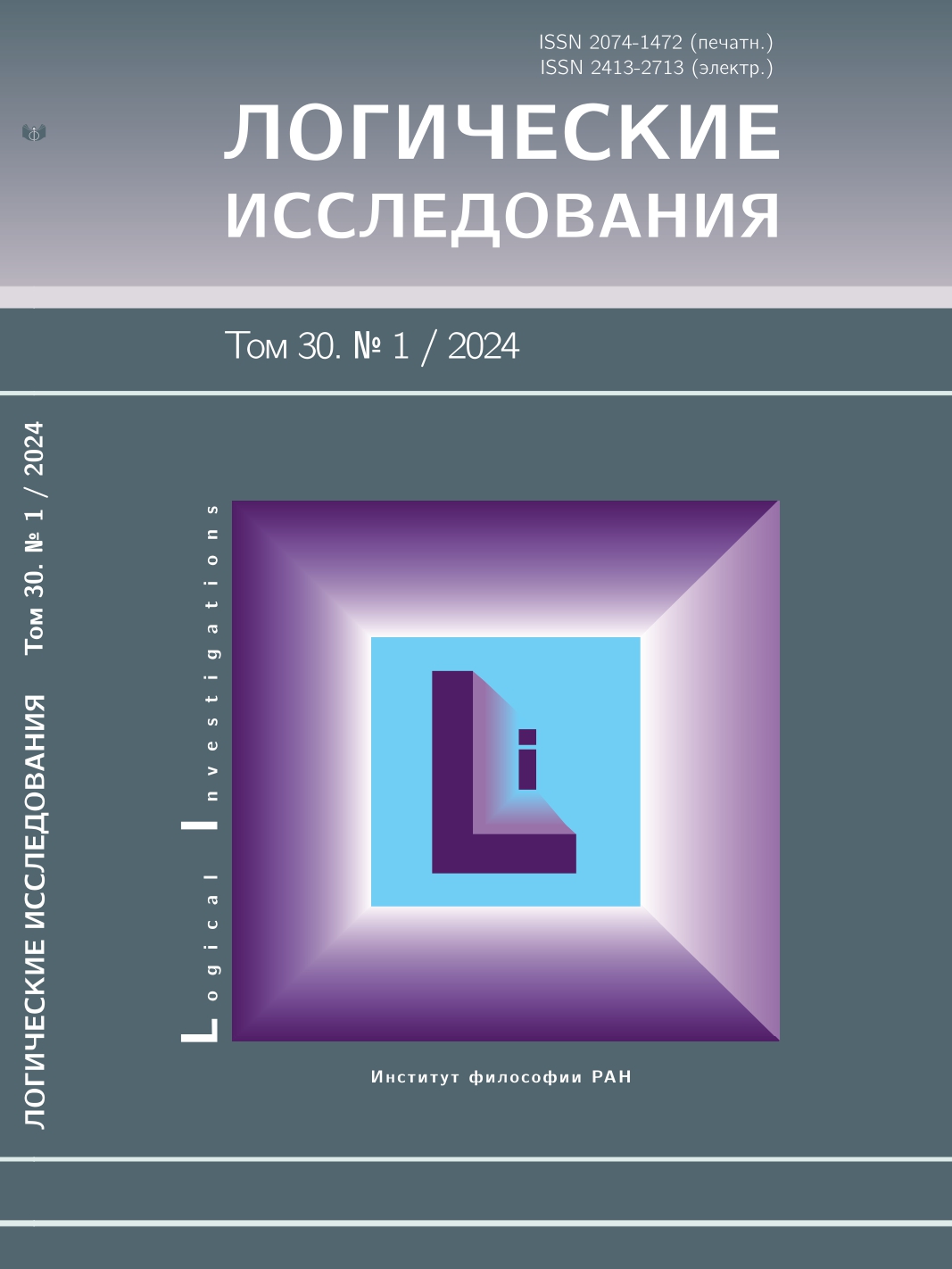Modulo reasoning I. Logic of undeducibility
##plugins.themes.bootstrap3.article.main##
Abstract
The aim of this paper is to formalize one of the variants of modulo reasoning, in which the conclusion follows from a set of premises and a set of additional assumptions (module), but does not follow from these sets separately. Being constructed, such logic, firstly, will allow describing important types of plausible argumentative reasoning, and secondly, it is an interesting example of defeasible logic, which satisfies the criterion of Rational Monotony.
In order to support this objective, it is proposed at the first stage to formalize the relation of non-derivability between the set of premises and the conclusion in the form of a system of peculiar undeducibility. In this paper, first I semantically characterize such logic. Then the corresponding calculus is constructed and its semantic adequacy is proved.
The resulting system has a number of interesting properties. It no longer contains the standard paradoxes of entailment, but they have been replaced by new paradoxes: “contradiction follows from any feasible formula”, “the law does not follow from nothing”. For axiomatization, it was necessary to significantly modify the concept of substituting a formula in place of a variable so as to preserve non-derivability.
Further prospects for work in this regard are related to the construction of a family of logics in which the complex relation of derivability will include non-derivability as its component part. One of such possible presumptive logics will be intended to formalize the so called Rational Monotony.
##plugins.generic.usageStats.downloads##
##plugins.themes.bootstrap3.article.details##
Copyright (c) 2024 Дмитрий Владимирович Зайцев

This work is licensed under a Creative Commons Attribution-NonCommercial 4.0 International License.
References
Anderson, Belnap, 1975 – Anderson A.R., Belnap N.D. Entailment. The Logic of Relevance and Necessity, Vol. 1. Princeton, NJ: Princeton University Press, 1975. 543 p.
Borg, 2020 – Borg A. Assumptive sequent-based argumentation // IfCoLog Journal of Logics and their Applications. 2020. Vol. 7. № 3. P. 227–294.
Gärdenfors, Makinson, 1994 – Gärdenfors P., Makinson D. Nonmonotonic inference based on expectations // Artificial Intelligence. 1994. Vol. 65. № 2. P. 197–245.
Makinson, 2003 – Makinson D. Bridges between classical and nonmonotonic logic // Logic Journal of IGPL. 2003. Vol. 11. № 1. P. 69–96.
Shramko et al., 2017 – Shramko Y., Zaitsev D., Belikov A. First-degree entailment and its relatives // Studia Logica. 2017. Vol. 105. № 6. P. 1291–1317.
Strasser, Antonelli, 2019 – Strasser Ch., Antonelli G.A. Non-monotonic Logic // The Stanford Encyclopedia of Philosophy (Summer 2019 Edition), Edward N. Zalta (ed.). URL: https://plato.stanford.edu/archives/sum2019/entries/logic-nonmonotonic (дата обращения: 10.01.2024).
Toni, 2014 – Toni F. A tutorial on assumption-based argumentation // Argument and Computation. 2014. Vol. 5. № 1. P. 89–117.
